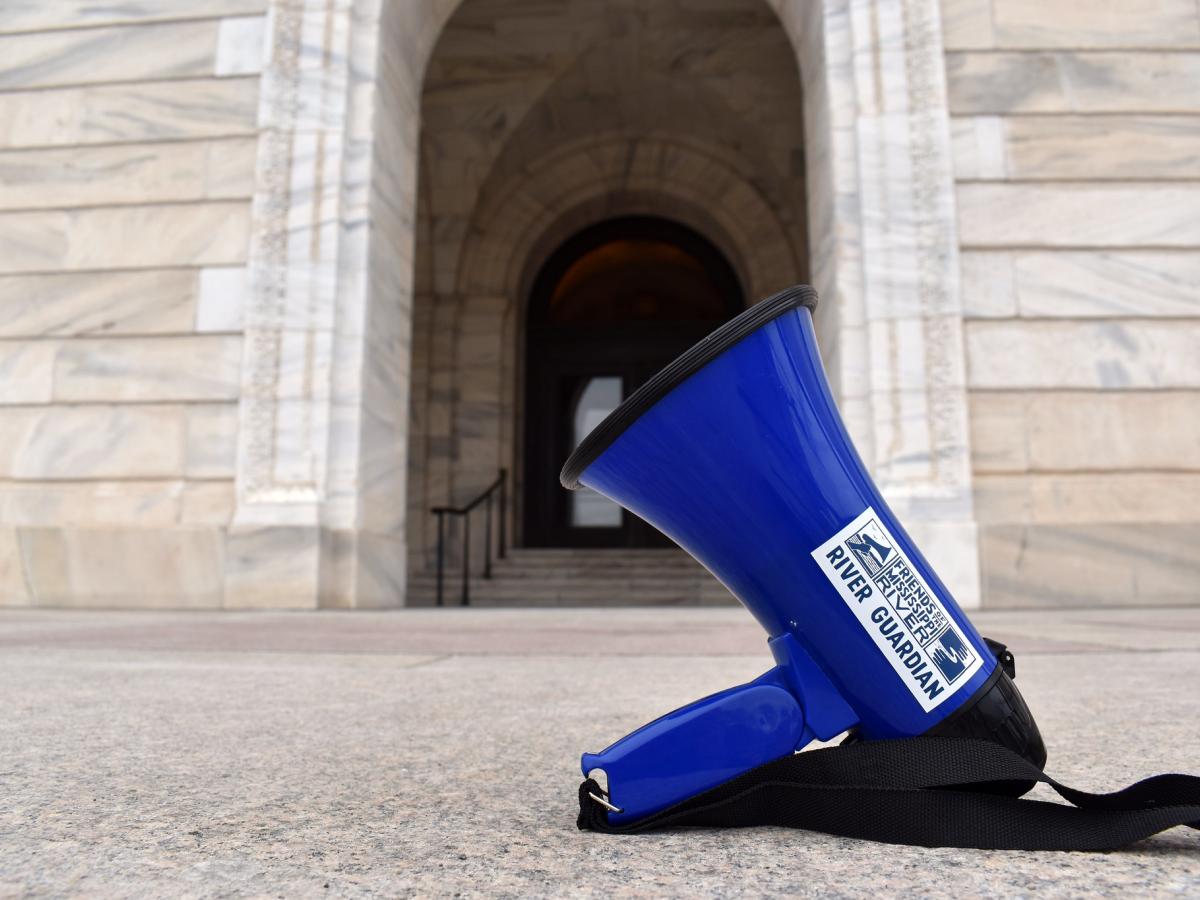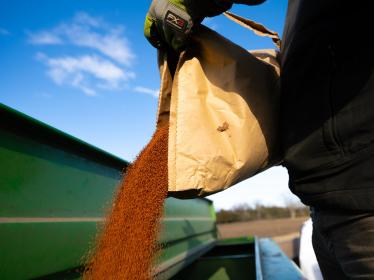What the new political landscape means for the Mississippi River

Even amid uncertainty, we'll be looking for opportunities to find common ground and advance policies that protect the Mississippi River. (Photo by David Wheaton for FMR)
We've had time to unpack the results of the 2024 election. To prepare for what's to come and consider the ramifications for the river — and our work — in the year ahead.
In Minnesota, the results produced a unique state legislative alignment that muddies what had been a narrow DFL trifecta. On the national stage, Republicans carried the day in federal elections and will control the White House and both chambers of Congress, all but ensuring seismic shifts in governing philosophy.
What do these changing political winds mean for the Mississippi River and FMR's 2025 policy goals? Let's take a closer look.
The Minnesota perspective: Razor-thin margins, plenty of uncertainty
A tightly contested election with razor-thin margins resulted in a remarkably even state legislative roster, with Gov. Tim Walz and Lt. Governor Peggy Flanagan in their same roles.
The DFL retained a one-vote advantage (34-33) in the Senate — technically a majority, but a fragile one. Ongoing legal challenges, health concerns and even mayoral campaign aspirations could alter the power balance.
In the House, the parties are likely to be deadlocked for only the second time in state history, (though a recent court ruling could tip things one direction, at least temporarily). This presumed 67-67 split led to a unique power-sharing agreement, with committees sharing bipartisan co-chairs and evenly split committee rosters.
The budget forecast is sure to shape discussions as well. The record surplus from last biennium is intact, but now with the risk of a structural state deficit starting as early as 2028. (The February budget forecast that informs budget negotiations will be worth watching.)
And what about bonding bills, which help fund infrastructure projects such as wastewater and drinking water facilities? With 60% of the vote required to pass a bonding bill, bipartisan cooperation will be required.
What state results mean for the Mississippi River
Clean water affects everybody, and Friends of the Mississippi River has been very intentional about pursuing policy solutions that are bipartisan. We're heartened by the consistent support from both sides of the aisle, and we expect that to continue in the 2025 session. As a result, several of our top priorities won't change much:
- Forever Green: We hope to secure additional long-term base funding for the Forever Green Initiative at the University of Minnesota. Teams there are producing the next generation of economically viable clean-water crops that reduce runoff pollution and habitat loss.
- Clean-water crops business grants: We'll be asking for ongoing funding for the clean-water crops grants program FMR helped establish. This program supports processors, distributors and other businesses that are helping bring Forever Green crops to market.
- Safeguarding dedicated environmental funds: We will urge lawmakers to continue the tradition of honoring recommendations for how best to invest dedicated environmental funds, including the newly rededicated Environment & Natural Resources Trust Fund and Clean Water Fund.
- Investments in sustainable aviation fuel: As new renewable jet fuels take off in Minnesota, we hope the state will prioritize winter annual oilseeds fuels that don't just reduce aviation emissions, but also improve water quality, habitat and farm prosperity.
For those environmental priorities that don't have the same strong bipartisan support, the path forward appears less favorable. That includes our pursuit of a Minnesota Clean Transportation Standard, a reinstated MPCA Citizens' Board and the phasing out of lead shot and tackle. Even so, we'll be actively looking for opportunities to build support in these spaces and advance what we can.
The federal perspective: A red tide
Donald Trump will return to the White House, following one of the most contested presidential races in memory. Republicans won control of the U.S. Senate 53-47 (including Independents that caucus with the Democrats) and held on to the House (220-215 pending any additional recounts, appointments and resignations).
The makeup of Minnesota’s Congressional delegation remains unchanged. Sen. Amy Klobuchar easily secured another term, while the state's House contingent remains divided 4-4 among both major parties, with no seats changing control.
What national results mean for the Mississippi River
Uncertainty is the watchword in D.C. these days. A handful of policy and funding priorities await federal action in the new Congress that could impact the Mississippi River — for better or worse. That includes:
- The Farm Bill: The long-overdue Farm Bill is likely delayed further, and will likely result in reduced investment in farm conservation farm equity and justice initiatives. In addition, there are real questions about the future of farm safety net programs and the potential for economic upheaval in the agricultural sector.
- Inflation Reduction Act (IRA) environmental funding: Even those close to the incoming Trump administration are uncertain how IRA funding will fare. Whether this landmark climate legislation will remain in place or suffer a partial (or total) repeal is anyone’s guess.
- The Mississippi River Restoration and Resilience Initiative (MRRRI). The prospects for this exciting new federal river initiative remain unclear. While the MRRRI Collaborative remains deeply committed to this work, we acknowledge that absent strong support from GOP leadership in DC, the effort to create a 10-state initiative to restore the Mississippi River in the next congress is uncertain at best.
Yes, there are a lot of unknowns at both the state and federal level. But we’re confident there will be opportunities to find common ground and advance policies that protect the Mississippi River. When those opportunities arise, we will be there to capitalize.



